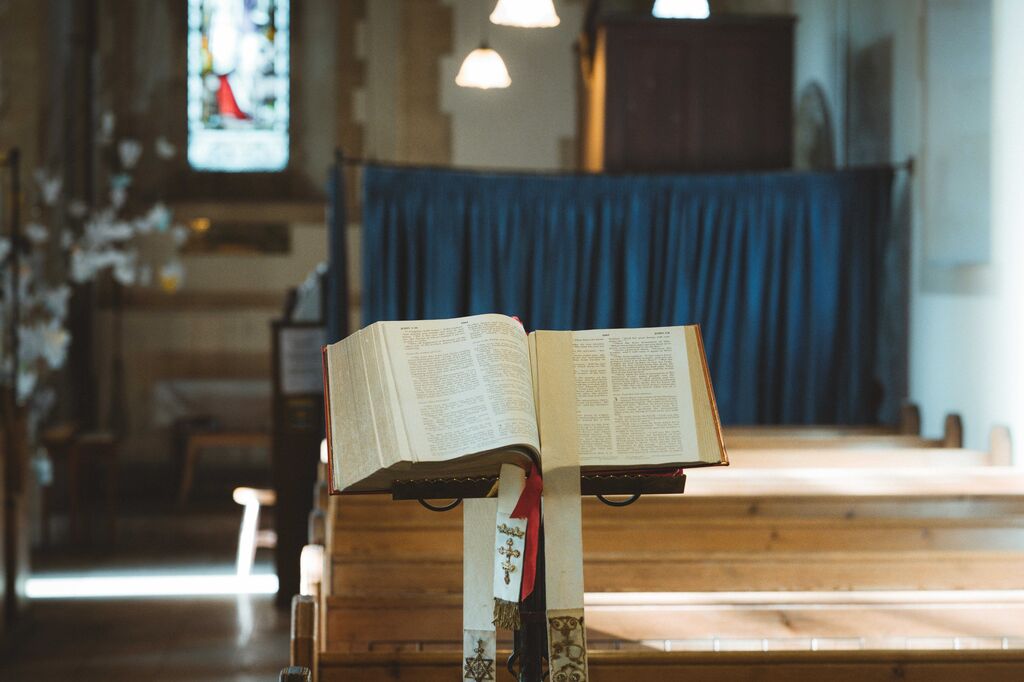Christians are in the minority now - should we be worried?

So it’s finally happened. After decades of consistent decline in the numbers of people in the UK identifying as Christians, we are finally in the minority (just!). For many of us, the news this week that (for the first time since the Dark Ages) Christians make up less than 50% of the British population will be sad but come as no surprise. The numbers are stark: only 20 years ago, 72% of citizens declared themselves to be Christians. Now that only stands at 46%.
What are we to make of such dramatic changes within British society? Can Britain still be called a ‘Christian’ country? And for many of us who have regularly prayed for revival in our nation, how are we to process what God has (or hasn’t) been doing in recent years?
I suspect many of us will feel that the numbers are beginning to reflect the reality down on the ground, with some who had little more than a nominal affiliation to Christianity in the first place finally disavowing themselves of a label which meant little to them anyway.
“These people honour me with their lips, but their hearts are far from me.”
Although external markers are not the mark of saving faith (praise God that we are saved by grace alone!) and we do not know what is in anyone’s heart, the fact that estimates suggest that only 5% of people in the UK attend church weekly, has meant that the census numbers have always felt vastly over-inflated. When combined with an ever-advancing age of the average congregant in the pew, barring a divinely led turn-around, we’d surely be expecting the downward trend in the numbers to continue.
However, the headline figures inevitably provide an overly simplistic view of declining faith in the UK. Whereas some denominations are going backwards (the Church of England prominent among them) and churches in many areas are disappearing, it is not a consistent picture across the board. My own diocese (London) has actually been growing in number, and whereas the numbers in predominantly white churches have declined, predominantly black Pentecostal churches have held up more strongly.
And within those who say they are of no religion (where the growth has been stark since it first appeared as an option in 2001: from 15% to 37% within 20 years), there is still a surprising spiritual openness. In recent research commissioned by Theos, 17% of those claiming no religious affiliation still believed in the power of prayer and 20% believed in an afterlife. Only 51% said they did not believe in God. Such figures should act as an encouragement to us: some people might genuinely be more open than we would expect.
Amid headlines of Christian numbers on the decline, it can be all too tempting to feel sorry for ourselves and like we are alone in fighting the good fight; like Elijah, we might feel like ‘I am the only one left’ (1 Kings 19:14), when really, the Lord has preserved a faithful remnant: if more than 2 million people (as suggested by church statistics) are active in their Christian faith, that is still 2 million more than Jesus started with.
“Yet I reserve seven thousand in Israel—all whose knees have not bowed down to Baal and whose mouths have not kissed him.”
I wonder whether the reason we might have begun to feel more isolated in recent years is perhaps more to do with the prevailing ‘established’ narratives than anything else.
We are now faced by increasingly aggressive societal forces: a secularism that tells us faith is merely a private matter (fine for us, but not to be shared with anyone else); a moral relativism which declares that no one worldview is better or worse than any other (unless, of course, it is one society doesn’t like!); and a strident atheism which sees faith of any description as actively harmful (as in Christopher Hitchens’ best-selling book, ‘Religion poisons everything’).
When those are the messages (particularly put forward within the mainstream media) which society tells us, it is easy to feel like - in human terms at least - Christianity in the UK is in terminal decline. It may be the official faith, but in no meaningful way can we be called a ‘Christian nation’.
And yet the terminology of a ‘Christian nation’ has always felt problematic in and of itself. God’s Kingdom has always been political - Jesus is Lord, not Caesar, or indeed Rishi Sunak! - but it also transcends our human political boundaries. People have never been Christians by virtue of their nation, or their culture, or the Christian foundations to their ethics: to do so would be to fall back into the mistakes of the 1st Century Judaizers.
“And do not think you can say to yourselves, ‘We have Abraham as our father.’ I tell you that out of these stones God can raise up children for Abraham.”
Membership of God’s Kingdom has never been determined by where you were born but whether you were born again. What matters is not our nation’s Christian heritage, but the individual hearts of its inhabitants. Last week at my church we saw one man baptised in the morning: in light of this week’s figures, I was reminded that God - through the work of His Spirit in conversion - is growing His Kingdom the same way he always has done: through the redemption of one repentant sinner at a time.
And when numbers of Christians do decline (and even from the churches listed in Scripture we can see plenty which did not stand the test of time: just think of the 7 churches in Revelation), that is not a sign that things have ‘gone wrong’ in God’s plan. We believe in a Sovereign God, who is never taken by surprise.
“All the days ordained for me were written in your book before one of them came to be.”
It is God who ultimately ordains the rise (or fall) of the Gospel in every kingdom, and his purposes cannot be thwarted. The Gospel-message continues to advance around the world, with the explosion of Christianity in Africa and China in particular. God is still at work: and although it is easy to feel discouraged about where we’re at now in the UK, he is working his purposes out for our nation and they will (whatever they are!) be accomplished.
“I make known the end from the beginning, from ancient times, what is still to come. I say, ‘My purpose will stand, and I will do all that I please.’”
It is God’s responsibility, not ours, to actually build His people, a people from every tribe, tongue and nation (including the UK!). We are (in His grace) His partners, through prayer and evangelism, but He is responsible for the results. We are called only to be faithful.
For some of us, that might mean seeking to invite friends or family to services this Christmas time: there is never an easier time to bring someone along to church, and who doesn't enjoy a free mince pie! For others of us it might be drawing up a list of people we want to pray for, and asking God for opportunities to chat to them about our faith.
And it certainly means looking to present the radical message of Jesus’ life, death on the cross, and rising from the dead in all its fullness. In a post-Christian world, where our nation’s values and ethics have already been so shaped by the Christian worldview, it is the earth-shattering message of forgiveness of sins and resurrection to eternal life that our friends need.
As we draw close to Christmas, we think back to another census more than 2000 years ago, when Joseph and Mary, carrying the baby Jesus in her womb, headed across to Bethlehem. Jesus began as just one man with 12 followers. Today those pledging allegiance to Him number more than 2 billion worldwide.
So do the census figures this week mean it’s time to panic? Somehow, I rather think God has still got things under control...






